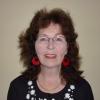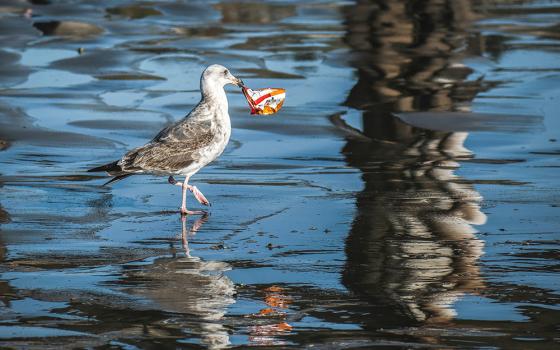
MARYKNOLL, N.Y. -- To the more traditional elements of their job description, two Maryknoll missioners in Guatemala have added the responsibility of being a presence in the face of injustice and inhumanity.
Fr. William F. Mullan and Br. Martin J. Shea said their combined 110 years of service to Maryknoll, most of it in Guatemala, included evangelization and pastoral care of the local church, as well as temporal and emotional support for people displaced by that country's civil war.
"The church is very vital, very alive and very present in the face of inhumanity," Shea told Catholic News Service in a June 20 interview at the Maryknoll Mission Center.
He and Mullen were among 37 Maryknoll fathers and brothers who celebrated milestone jubilees at a June 24 Mass at the society's headquarters. Shea professed his first oath to Maryknoll 60 years ago. Mullen was ordained in 1962.
Mullen said his work was primarily pastoral when he arrived in rural Huehuetenango after studying linguistics at the University of Oklahoma following his ordination. "There were no roads, electricity or running water," he recalled.
There were three priests and Catholicism was already well-established, he said.
"We'd set out on five-day visits to small villages and townships," he said. "We'd sleep in people's houses. The catechists would have prepared people for the sacraments and we'd administer baptism, marriage and first Communion. And we'd meet with the catechists to see how things were going."
Mullen said he is able to celebrate sacraments, offer Mass and preach in three of the Mayan languages spoken in Guatemala. He said the Second Vatican Council encouraged missioners to appreciate the types of religious expression indigenous to a culture. As a result, Maryknollers began to value "the beauty of Mayan faith and culture," he said.
Over the years, Maryknoll sisters introduced preventive health programs and the Maryknollers and other religious orders established agricultural projects and schools, Mullen said.
At the same time, he said, "there were things going on in Guatemala that we weren't conscious of," referring to the brutal civil war waged from 1960 to 1996. More than 200,000 people died during the war, but Mullen said the missioners did not see direct evidence of the war until "a very violent genocide" aimed at Mayans in the early 1980s.
About 100,000 civilians were massacred, he said, and in one particularly gruesome incident, more than 1,000 people were killed in a parish he had previously served.
"I started to cry when I read the report by (Maryknoll) Fr. Ron Hennessy," Mullen said.
Maryknoll leadership training, literacy programs and agriculture initiatives were halted at that time, Mullen said, because the Guatemalan military considered the activities subversive.
"Ten priests, many catechists and health promoters were killed," he said. "We became sources of information for reporters, the church, the U.S. Embassy, Congress people and the Department of State."
Shea was assigned to Huehuetenango in 1955 and has worked in pastoral ministry, education, health care and post-earthquake reconstruction. He accompanied a group of Guatemalan refugees to safety in southern Mexico in 1985 and lived with them for three years.
Shea said the experience of living with the refugees changed his life.
"You get kind of caught up in it," he said. "The mission is to survive, and people are survivors. They get on with their lives despite the challenges. The good news is life."
Many of the refugees relocated to Guatemala after a peace accord was signed in 1996, he said. Shea, though retired, continues to live and work with immigrants and returnees in Peten, Guatemala.
The face of the Catholic church in Guatemala has changed during the years Mullen and Shea have served there. Mullen said the balance has tipped from missionary priests to local priests. There are now six Maryknoll priests and brothers in Guatemala; there were 64 in 1962. Mullen said most of the priests and bishops in the country are Guatemalan. There are 26 indigenous priests in the state of Huehuetenango.
"Every parish there has an indigenous priest; many are Mayan, and we helped a lot of them get educated," he said.
The men said new parishes are being established to accommodate the growth of the church in Guatemala, but there is a shortage of priests to staff them. They said catechists celebrate the Liturgy of the Word and "a priest shows up three or four times a year" in remote areas.
Shea said, "The church today is the church of the people. It's alive and beautiful. The catechists are the future. The church is there."
Mullen added, "It certainly does not depend on Maryknoll."
"Haven't we done what we came to do?" Shea asked. "Maryknoll's goal is to develop a native church and we've worked ourselves out of a job."
Mullen said his more recent pastoral emphasis was on visiting 30 Q'ek'chi villages and training lay leaders.
"They're very religious, family-oriented, good people," he said. "It's very hard to leave there."



